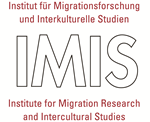Focusing on the Latin American and Caribbean countries as global front runners in the adoption of emigrant policies, our research project addresses two central questions: (1) How do states of origin reach out to emigrants? (2) How do "emigrant politics" – that is, the interaction of homeland political actors with emigrants – play out in the adoption of these policies? The project adopts a comprehensive empirical and mixed-methods approach. Its goal is to provide new insights on how and why sending states actively adopt policies to engage with their citizens abroad, and on how this interaction impacts the politics and polities of the countries of origin. Our study addresses a key gap in the current research on emigrant politics and policies. This research stretches uneasily between, on the one hand, a large number of migrant-centred studies that document the transnational political practices of emigrants and, on the other, a limited number of studies on the policies of the states of origin. We want to contribute to closing this gap by first surveying and ordering the policies, and then looking at the role that emigrants have played in the very development of these policies. Moreover, our project brings the advances made in the comparative study of emigrant policies in some particular cases and across regions (Gamlen 2006; Rhodes and Harutyunyan 2010; Ragazzi 2014) to Latin America and the Caribbean. It goes beyond specific policies (e.g. Escobar 2007) to cover a very wide range of policies that target emigrants as beneficiaries. For Latin America and the Caribbean, such a thorough comparative analysis of emigrant policies has so far been lacking. Finally, the project overcomes some major limitations of the political science research on transnational migration in terms of the comparability of cases and the selection issues behind case studies by using a mixed-methods research design. Our project consists of three phases. First, we have collected, ordered and analysed new data on the political, economic, symbolic, cultural, and administrative dimensions of emigrant policies for 22 countries in Latin America and the Caribbean. Using a rigorous data collection tool, we have systematically gathered data, codified them following clear codification rules, and developed an original and comprehensive emigrant policies index, which provides a general picture of the importance that states of origin in the region attribute to emigrant policies. Second, we are now using this database to carry out quantitative analyses that test hypotheses on the structural reasons for the adoption of emigrant policies. Third, and coming next in our project, we will undertake a small-N qualitative, comparative case study in order to understand the political dynamics between the sending states and emigrants in the design and adoption of emigrant policies. In accordance with Liebermann’s concept of "nested analysis," we have selected these cases with the aim of maximising the variety of emigrant policies in order to explore the different possible mechanisms through which emigrant policies have come to adopt different models.
Polities beyond Borders. The New Dynamics of Emigrant Politics and Policies in Latin America
| Projektart | Drittmittelprojekt |
| Finanzierung | |
| Themen |
|
| Disziplinen |
|
| Projektwebseite | www.giga-hamburg.de |
| Laufzeit | 01/2014 ‒ 12/2016 |
| Geographischer Fokus |
|
| Institutionen |
|
| Beteiligte Personen |
|
| Kurzbeschreibung |
|







